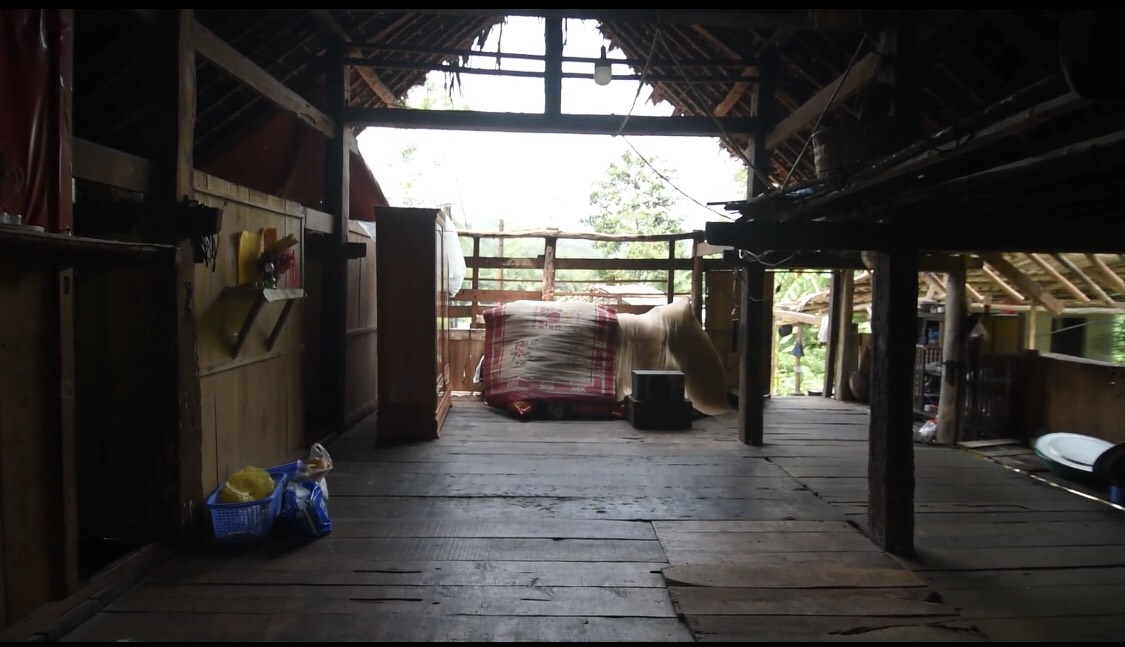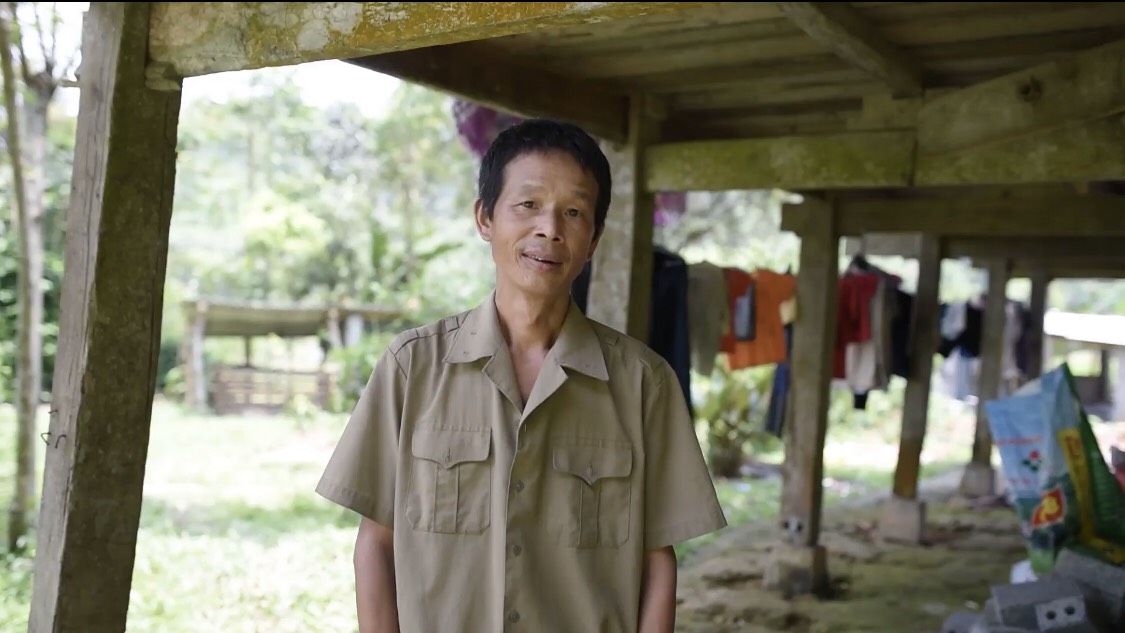Poor veteran Vi Xuyen and his dream of a new house
14/07/2020 10:36
"Life has a few decades left, just live it temporarily." At this time last year, a wounded soldier of the Tay ethnic group, Vi Van Thinh, 60 years old, in Phu Linh commune, Vi Xuyen district, Ha Giang was still lying in bed listening to the rain pouring through the roof, thinking to himself.
On those rainy and windy nights, the three children and grandchildren of Mr. Thinh would rub all night and could not sleep because of the rain. When it rains too much, the children's mother will carry them to the neighbor to sleep, sometimes the whole family goes to sleep. The rotten wooden sticks are no match for the sky…
More than twenty years ago, after he got married and gave birth to children, the house was built by his brothers and parents for him as a private residence. Junk logs, ones cut in the forest, some begging for relatives, ready-made straw on the fields, to be roofed on top of the roof. For many years, only the layers of rotten straw have darkened, once every three years, and nothing has changed. Still the old clumps of corn hung over the truss, still the baskets, the bags of grain to eat scattered on the roof like a treasure.

In 2019, Phu Linh commune is still on the list of extremely difficult communes of poor Vi Xuyen district. The ratio of poor and near-poor households is 263/1300, or about 20%. More than 10km from Ha Giang city, but just a few years ago, the roads to the village were still muddy, in the rainy season, flash floods, the villages in Phu Linh commune will naturally become isolated areas.
Ha Giang not only has picturesque clouds and ethnic minority children with peach cheeks and yellow canola flowers on their backs. Ha Giang 40 years ago went through a loss-filled spring.
During the border war in February 1979, Mr. Thinh was just a teenager at that time. The border memory of those days in Thinh's mind was only the gray color of dynamite smoke and the red color of human blood. Father, brother put on the pegs, the younger brother followed his mother to carry rice and carried him to the cave to avoid the enemy. Leaving behind the village, the village is shriveled, buried in the rock.
Ten years of bombs and bullets resounding, the teenager also grew up following his brothers and sisters to join the volunteer army to keep every tree stump at the top of the country until the end of the war before returning to the village to get married and have children. Mr. Thinh's ears have been deaf since his days in the army, and the stray bullets, here and there, still throb in the sky.

Thinh's seven family members live on corn fields and acacia groves behind the house, with his wife and children taking care of the crops. In the midst of rolling hills and mountains in Tha village, concrete roads have reached, looming concrete stilts and corrugated iron roofs. Mr. Thinh's family is the only household that still gathers in a ramshackle cottage, waiting for a heavy rain to collapse. The dream of a solid house, Mr. Thinh thought that there was a time when he had to leave it to his grandson's life, his son's life to fulfill...
But that was also the time when the Vietlott red army came to Ha Giang. Never knowing the two words "afraid of distance, afraid of suffering", the volunteer arm of the Vietlott family has brought new bridges to the An Giang river area, giving gifts to lottery ticket sellers walking in Saigon during the epidemic. , bringing Tet gifts to the poor in Son La, giving gifts to poor students in the mountainous border area of Thanh Hoa… In July of the emotions of the source on the occasion of business launch in Ha Giang, Vietlott sponsored 120 million VND. , built two houses of gratitude to the poor wounded soldiers of the first land, Ha Giang, one of which was Mr. Thinh's house.

One June afternoon, when he received the good news, Mr. Vi Van Thinh quickly wiped his calloused hands, which were still unfinished, for ducks, wiped his tears, looked at his wife, and looked at his three grandchildren. Thinking about the rainy night, they can sleep peacefully in the house that does not leak, Mr. Thinh can only hold the hand of the benefactor, thanking him endlessly.
Last July 9, getting up early, choosing the cleanest and most comfortable shirt in the house, Mr. Thinh put it on, hugged his grandson and waited on the stairs of the house. Today is the groundbreaking day for the new house. His neighbors also came to watch around, Mr. Thinh shoveled a shovel to "break ground" for the new house, and everyone shouted at the same time. Thinh's wife stood in the room of the old house, wiping her tears with her skirt.
More than 20 years of lifelong commitment to this house as a bride, now that it is removed, she regrets a lot, and is sad too. Mr. Thinh decided to see if there were any still good trees, and put them in the new house, but the inside of the pillars were all rotten and could only be used as firewood.
The new house retains the traditional stilt house structure of the Tay people, like the old house, only replaced with solid concrete materials. The old veteran looked at the nest that was taking shape and said that he suddenly felt like he was getting better and better. Another rainy season is about to come, but this year, Mr. Thinh is no longer anxious...
 English
English 





